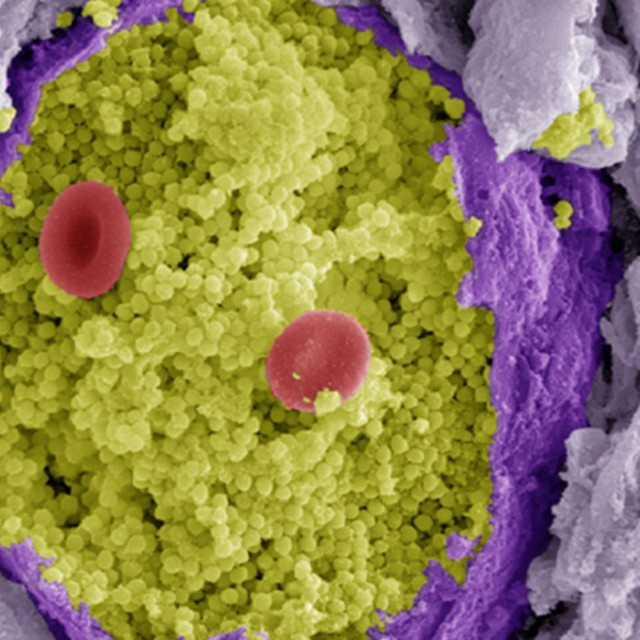Viruses and microbial organisms including bacteria, fungi, and parasites have a profound impact on human and environmental health. These nanometer- to micron-sized entities influence the evolution and diversity of all plants and animals on our planet, and drive geochemical transformations that shape terrestrial and aquatic ecosystems.
Recent breakthroughs in genomics, imaging, and analytical methods are revolutionizing the study of microbes, and The Committee on Microbiology is providing its students with specialized research training in multiple areas of microbial science. Our Microbiology graduate program unites 27 faculty from 10 departments, and offers an interdisciplinary course of study leading to the PhD.
Our research in microbiology extends from the molecular to the microbiome/community scale, and is yielding new understanding of processes ranging from the pathophysiology of microbial infection to the evolutionary ecology of plant-microbe interactions.
Preparing students to conduct research: Our core curriculum focuses on multiple aspects of Microbial Science, including:
- Host-Microbe Interactions
- Microbial Pathogenesis
- Virology
- Microbial Ecology and Evolution
- Molecular and Cellular Microbiology
- Microbiome Studies

